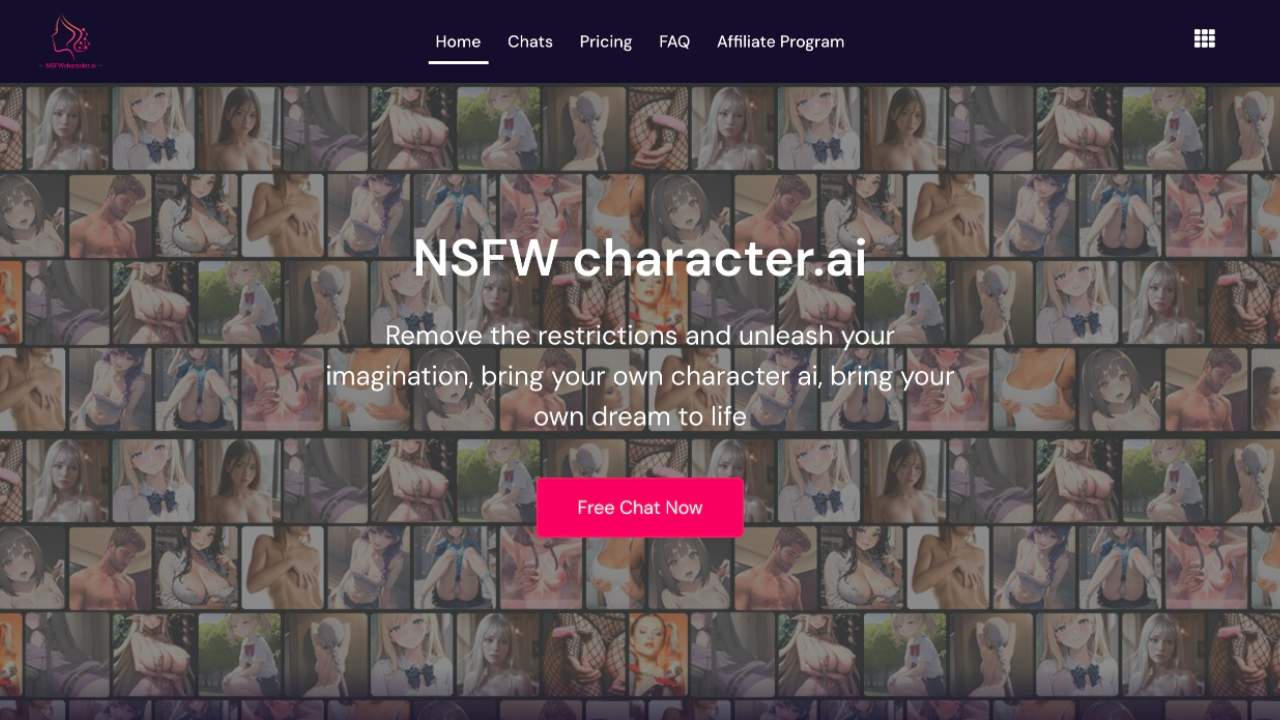Presentation
Artificial reasoning (artificial intelligence) headways have recently opened up new skylines in different ventures, from medical care to amusement. One area where AI has gained considerable attention is in the creation of characters and content for adult-oriented or NSFW (Not Safe For Work) applications. While this progression is devoted to creative clarification and amusement, it raises moral, certifiable, and social worries. This article investigates the new turn of events and results of NSFW Character AI-duplicated knowledge.
The Ascent of NSFW Character Artificial Intelligence
NSFW character AI uses artificial intelligence and machine learning to generate explicit, adult-oriented content, including characters, stories, images, and animations. These artificial intelligence frameworks utilize profound learning calculations to frequently break down and duplicate human-made NSFW content with fantastic precision. These counterfeit thinking applications incorporate chatbots, character generators, and grown-up-themed computer games.
Makers and designers have embraced NSFW character simulated intelligence in light of multiple factors, for example, diminishing creation costs, empowering client-produced content, and giving more vivid encounters. The making ubiquity of these advances has raised critical moral issues.
Moral Contemplations
- Consent and Privacy: One of the most pressing concerns is the potential misuse of NSFW character AI to create non-consensual or deepfake content. Artificial intelligence-produced characters can be controlled to look like genuine people, making unequivocal substances without the subject’s consent. This raises severe assurance and consent issues.
- Exploitation and Objectification: NSFW character AI can perpetuate objectification and unrealistic standards of beauty and behavior. The development’s effortlessness of making communicated joy might incite the commodification of human bodies and advance pernicious speculations.
- Age Verification: Ensuring that NSFW content remains restricted to adults is essential. In this circumstance, artificial reasoning presents hardships in doing fruitful age affirmation parts, perhaps allowing minors to communicate joy.
- Addiction and Escapism: Some critics argue that the increasing sophistication of NSFW character AI can contribute to addiction and unhealthy escapism, as users may become overly attached to AI-generated characters, withdrawing from real-world relationships and responsibilities.
Legitimate Ramifications
The legal landscape surrounding NSFW character AI is still evolving. As of my last knowledge update in September 2021, several countries have yet to define clear regulations governing the creation and distribution of explicit AI-generated content. Nonetheless, a few purviews have done whatever it takes to resolve the issue.
- Intellectual Property: Ownership and copyright of AI-generated NSFW content remain complex issues. Determining whether the creator, the AI developer, or the user owns the rights to generated content can be challenging.
- Child Exploitation: Creating AI-generated content featuring characters who appear underage may be illegal in many jurisdictions, even if no actual minors are involved—this stance is a critical and legitimate danger for engineers and clients.
- Privacy Violations: Deepfake technology and AI-generated content can infringe on an individual’s privacy rights. Lawsuits related to the unauthorized use of likenesses or distribution of explicit AI-generated content could become more common.
Responsible Development and Usage
Given the ethical and legal concerns surrounding NSFW’s character, AI, developers, users, and policymakers must approach this technology responsibly.
- Consent and Privacy: Developers must prioritize obtaining approval for using someone’s likeness in NSFW character AI. Furthermore, robust security assurances ought to be set up to forestall the abuse of simulated intelligence-produced content.
- Age Verification: Strict age verification measures should be implemented to restrict access to explicit AI-generated content to adults only.
- Education and Awareness: Users should be educated about the potential risks associated with deepfake technology and AI-generated content and encouraged to use it responsibly.
- Regulation and Enforcement: Policymakers should work to create and enforce clear rules governing NSFW character AI to protect individuals’ rights and privacy.
End
NSFW character computer-based intelligence addresses a powerful, quickly developing innovation with imaginative potential and moral difficulties. Finding agreement among advancement and commitment is crucial to ensure this development benefits society while protecting individuals’ security, consent, and thriving. As AI advances, developers, users, and policymakers must collaborate to navigate the complex landscape of NSFW’s character AI responsibly and ethically.

